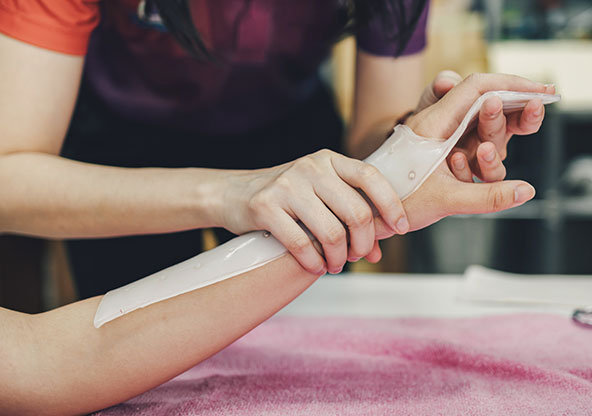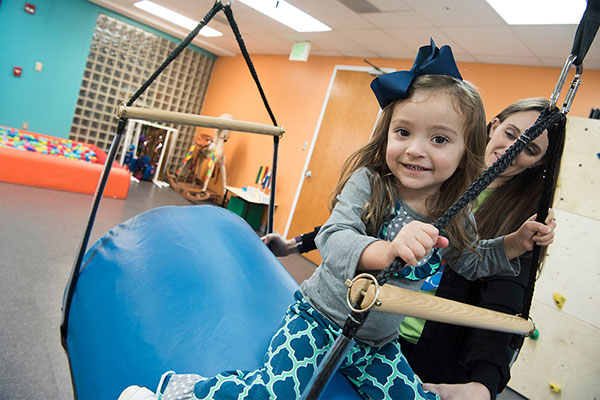Physical Therapy
Personalized care for recovery, strength and long-term mobility
Our licensed physical therapists combine hands-on expertise with the latest evidence-based techniques to help you recover from injury, manage pain, restore function, and regain independence. Whether you are healing from surgery, overcoming joint pain, or working toward peak athletic performance, we create a personalized plan tailored to your needs.
Why Choose CHRISTUS Physical Therapy?
- Evidence-based care: Treatment methods backed by research and peer-reviewed studies.
- Personalized programs: Therapy plans designed for your body, lifestyle, and goals.
- Hands-on healing: Manual therapy and therapeutic touch to reduce pain and restore movement.
- Whole-person approach: From young athletes to adults recovering from joint replacement, we treat the full spectrum of physical needs.
How Physical Therapy Can Help
Our therapists provide specialized care for:
- Neck, back, shoulder, hip, knee, ankle, and foot conditions
- Stroke and neuromuscular rehabilitation
- Post-surgical recovery, including joint replacements
- Sports injuries and athletic performance
- Weakness caused by inactivity
Physical therapy focuses on improving:
- Strength and range of motion
- Balance and coordination
- Mobility and independence
- Reduction of pain and swelling
Specialized Therapy Services
- Women’s Health Physical Therapy: Helps women restore function and manage common conditions throughout life stages.
- Speech Therapy: This includes personalized programs for speech, communication, and swallowing disorders across all ages.
- Occupational Therapy: Skilled treatment to build independence and confidence in daily life.
- Pediatric Outpatient Rehabilitation: High-quality care for children with developmental delays or medical conditions affecting growth and movement.
- Hand Therapy: Certified specialists treat hand and upper extremity injuries and conditions, including fractures, tendonitis, trauma, and post-surgical recovery.
Physical Therapy in Action
- Sports and Functional Testing
Advanced testing measures readiness for return to play, work, or daily activity. These tests mimic real-world movement to reduce reinjury risk and build confidence. - Post-Surgical Recovery
After procedures like knee or hip replacement, early movement is key. Our therapists guide you safely through exercises that restore motion, reduce swelling, and build long-term strength. - Communication That Supports Healing
We work closely with doctors, coaches, trainers, employers, and families to keep recovery on track and expectations clear.
Healing the Whole Person
At CHRISTUS, we believe physical therapy goes beyond just healing the body. Our care supports:
- Confidence and mental readiness: Helping patients trust their bodies again after injury or surgery.
- Daily life skills: Preparing you for everyday movements, from climbing stairs to lifting at work.
- Long-term independence: Teaching home exercises to maintain progress well after your therapy ends.
What to Expect After Surgery
It’s normal to have pain and swelling for several weeks after a joint replacement. With guided therapy, patients restore range of motion, improve strength, and return to activity faster. Movement is essential to healing—and our team will support you every step of the way.
Frequently Asked Questions
In many cases, no. Depending on your state, you may have direct access to physical therapy, which means you can schedule an appointment without a physician referral. Our team can help you confirm what’s required in your area. However, insurance often requires a referral from a physician.
Some mild discomfort is normal, especially when recovering from surgery or injury, but therapy should never be overwhelming. Our therapists guide you at a safe pace and use techniques to reduce pain as your strength and mobility improve.
Treatment length varies by condition, but most patients see significant progress within 6–8 weeks. Some athletes or post-surgical patients may need longer-term rehabilitation. Your therapist will work with you to set personalized goals.
We recommend wearing loose, comfortable exercise clothing and supportive shoes to allow for free movement during therapy exercises.




